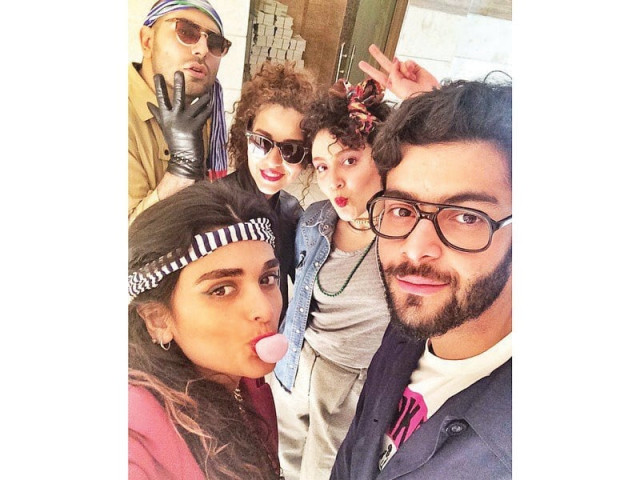Iran sentences youth over dancing in viral video
Group of Iranians grooving to Pharrell Williams’ Happy said to have ‘hurt public chastity’.

When Ayatollah Ruhollah Khomeini returned to the Islamic Republic of Iran in February 1979, he said, “We’re not afraid of sanctions. We’re not afraid of military invasion. What frightens us is invasion by western immorality.” What has since been considered as ‘deprave’ influence of the West on Iran, has been closely watched and sieved by the state.
In a recent display of impervious control on social media in Iran, a group of Iranian youth was sentenced to six months in jail accompanied by 91 lashes on Wednesday, reported the Daily Mail. What made the judicial authorities ‘unhappy’ was a video that the group posted of themselves dancing to US singer Pharrell Williams’ Happy on YouTube.
The video’s director, Sassan Solemani, got a longer one-year sentence along with the same number of lashes. Williams took to Twitter to express his discontent over the news. “It’s beyond sad these kids were arrested for spreading happiness,” he tweeted.
But the group members have been issued a ‘suspended sentence’, meaning, that if they are not arrested again for the next three years, their punishments will be dropped, explained their lawyer Farshid Rofugaran. “A suspended sentence becomes null and void after a certain period of time,” he said. “If a similar offense is committed during this period, then the accused are subject to legal punishment and the suspended sentence will be carried out as well.”
The group of three men and three women was arrested in May this year, a month after the video went viral. Part of a global campaign launched by Williams, the video was viewed by more than 100,000 people on YouTube. While in custody, they were humiliated and forced to confess to and apologise for their crime on national television, after which they were released on bail on the condition that they won’t speak to the media, IANS reported.
According to The Independent, police chief Hossein Sajedinia warned those watching the televised interrogation that the group’s video was “a vulgar clip which hurt public chastity.” In an April interview to the IranWire, one of the video’s stars said she and her friends were scared, but excited to make it, BuzzFeed reported. “We want to tell the world that Iran is a better place than what it is perceived to be,” she said. “Despite all the pressures and limitations, young people are joyful and want to make the situation better.”
From the Basij Resistance Force policing morals in public spaces to the state regulating media outlets, the country’s utilitarian approach towards governance has been blasted by international watchdogs. But undeterred, Iranian authorities continue to impose their iron-fisted control on mass media, just as its citizens take up a more potent role as netizens. According to the Preamble of the Constitution of Iran, “...the media must strictly refrain from diffusion and propagation of destructive and anti-Islamic practices...”
Having said that, Iranian president Hassan Rouhani’s tilt towards moderation, unlike his predecessor, hardliner Mahmoud Ahmedjinejad, may bode well for Iranians. The president has frequently spoken in favour of loosening the grip on media and freedom of the internet, despite little progress.
In fact, in what appeared to be a message expressing support for the group, a Twitter handle associated with Rouhani posted, “#Happiness is our people’s right. We shouldn’t be too hard on behaviours caused by joy.” But if this is the case, it raises the question of whether the judiciary and government are at loggerheads with each other on matters of national importance.
Published in The Express Tribune, September 20th, 2014.
Like Life & Style on Facebook, follow @ETLifeandStyle on Twitter for the latest in fashion, gossip and entertainment.





1725099588-0/BeFunky-(41)1725099588-0-208x130.webp)













COMMENTS
Comments are moderated and generally will be posted if they are on-topic and not abusive.
For more information, please see our Comments FAQ